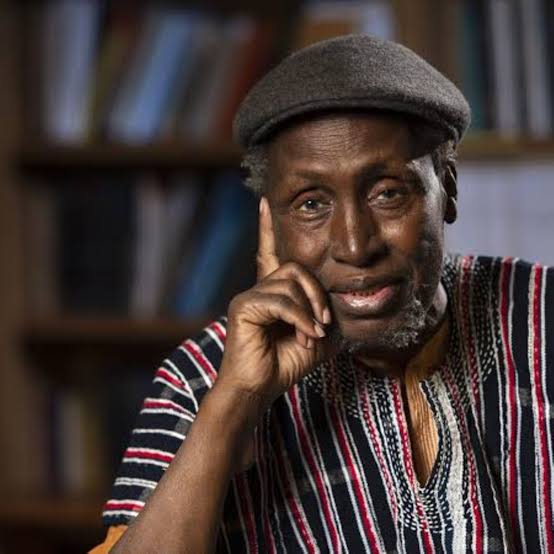
Celebrated Kenyan author, scholar, and activist Ngugi wa Thiong’o has died at the age of 87 in Atlanta, USA.
His daughter, Wanjiku wa Ngugi, announced his death.
“He [Ngugi wa Thiong’o ] lived a full life, fought a good fight.” Wanjuku wa Ngugi said
Born James Ngugi on January 5, 1938, in Kamiriithu, Kenya, Ngugi was a pivotal figure in African literature, known for his profound works that explored the impacts of colonialism and championed African languages.
His notable novels include Weep Not, Child (1964), The River Between (1965), A Grain of Wheat (1967), Petals of Blood (1977), and Wizard of the Crow (2006)
Ngugi’s commitment to cultural identity led him to write primarily in his native Gikuyu language, emphasizing the importance of indigenous languages in literature.
His activism and literary work often put him at odds with the Kenyan government, leading to his imprisonment in 1977 and subsequent exile. Despite these challenges, he continued to write and teach, holding positions at universities such as Yale and the University of California, Irvine.
Throughout his life, Ngugi received numerous accolades and was frequently mentioned as a contender for the Nobel Prize in Literature. He is survived by his wife, Njeeri, and nine children, four of whom are writers. The family plans to announce details of his memorial services in the coming days.
Ngugi wa Thiong’o’s legacy endures through his influential works and unwavering dedication to cultural authenticity and social justice.
Who was Ngugi wa Thiong’o?
Born James Ngugi January 5 1938 , was popularly known as East Africa’s leading novelist .
He began writing in English before later switching to write primarily in Givuyu. His works include the celebrated novel The River Between, plays, short stories, and essays, ranging from literary and social criticism to children’s literature.
He was the founder and editor of the Gikuyu-language journal Mũtĩiri. His short story The Upright Revolution: Or Why Humans Walk Upright was translated into over 100 languages.
In 1977, Ngũgĩ embarked upon a novel form of theatre in Kenya that sought to liberate the theatrical process from what he held to be “the general bourgeois education system”, by encouraging spontaneity and audience participation in the performances.
His project sought to “demystify” the theatrical process, and to avoid the “process of alienation [that] produces a gallery of active stars and an undifferentiated mass of grateful admirers” which, according to Ngũgĩ, encourages passivity in “ordinary people”.
Although his landmark play Ngaahika Ndeenda co-written with Ngugi w Mirii, was a commercial success, it was shut down by the authoritarian Kenyan regime six weeks after its opening.
Ngũgĩ was subsequently imprisoned for over a year. Adopted as an Amnesty International prisoner of conscience, he was released from prison and fled Kenya.
He was appointed Distinguished Professor of Comparative Literature and English at the University of Califonia ,Irvine. He previously taught at Northwesten University, Yale University, and New York University. Ngũgĩ was frequently regarded as a likely candidate for the Nobel Prize in Literature.
He won the 2001 International Nonino Prize in Italy, and the 2016 Park Kyong-ni Prize. Among his children are authors Mukoma wa Ngugi and Wanjiku wa Ngugi.